Research Themes

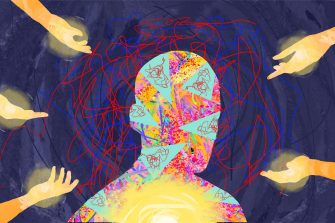
Cognition, Brain & Mental Health
Cognitive health is important for optimal ageing. Cognitive decline is not inevitable, although many of us will experience some minor changes in our memory and thinking as we age. The Institute is evaluating interventions to improve cognitive health at all ages and reduce risk of dementia. Mental health can be affected by social isolation and life changes occurring in later life.
The UNSW Ageing Futures Institute brings together leading researchers in cognition, psychology, neuroscience, medicine, public health, art and design to tackle the wide-ranging issues in this research theme.
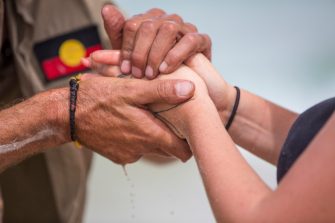
Inclusive Healthy Ageing
The UNSW Ageing Futures Institute will adopt a contextualised life-course perspective to healthy ageing, reducing inequities over the course of the ageing process. This will be done in terms of preventative measures as well as at the point of health care, through both policy and practical approaches and engaging policy makers and legislators.
We will address ‘how’ to enable optimal ageing by involving medicine, care, preventative health, technology, the built environment, transport, the arts, public policy, and co-design to deliver services and programs that are effective and appropriate.

Economy and Policy
In a rapidly developing world, social institutions, markets and policy must be modified to address the issues that stem from population ageing. Socioeconomic inequities across the life-course will affect how individuals and societies age, and impact current models of national and international economic sustainability.
The UNSW Ageing Futures Institute will focus on how the structure of social institutions, government, policy, and regulation inhibit or facilitate individuals and societies to optimise ageing.

People, Technology and Creativity
This research theme will investigate the interaction and integration of technology, smart design, social robotics and the built environment with individuals and society to address the challenges and opportunities of ageing. The Institute will translate research to produce innovations that support health and wellness, self-care, social engagement, and mobility.
This theme also encompasses the Ageing Well, Ageing in Place project - a technological approach to supporting, monitoring and delivering services for optimal ageing at home.

Ageing Well, Ageing in Place
Ageing in place isn't just about ageing at home, it's about keeping people connected to their communities and society, with the aim of improving quality of life and independence. The research under this sub-theme will focus on technological approaches and solutions for supporting, monitoring and delivering services for optimal ageing.
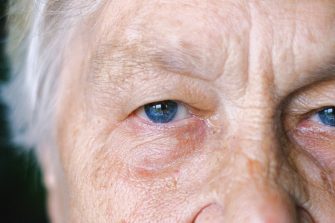
Self and Society
Social and individual perceptions, attitudes, cultural norms, and values about ageing and older people can adversely influence policy, opportunity, medical treatment, and daily experiences of older persons.
The Self and Society theme will leverage the existing relationships between the Arts and STEM disciplines within the Institute to investigate how we can change social attitudes and remove ageism and other stigma associated with ageing and dementia.
Lead Investigators

Professor Kaarin Anstey (Director)
Lead Investigator: Cognition, Brain & Mental Health
Professor Kaarin Anstey is an ARC Laureate and Director of the UNSW Ageing Futures Institute. Kaarin’s research programs focus on the causes, consequences and prevention of cognitive decline and dementia. She has led development of dementia risk assessment tools and dementia risk reduction interventions. Kaarin also conducts research into older driver safety and evaluates interventions to promote mobility and healthy ageing. She is a Director of the NHMRC Dementia Centre for Research Collaboration (DCRC) and Co-Deputy Director of the ARC Centre of Excellence in Population Ageing Research (CEPAR). Kaarin is also Chair of the International Research Network on Dementia Prevention (IRNDP).
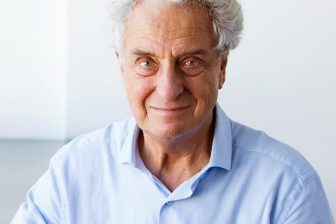
Professor John Piggott AO
Lead Investigator: Economy and Policy
Professor John Piggott is Director of the ARC Centre of Excellence in Population Ageing Research (CEPAR) at the University of New South Wales, Australia, where he is Scientia Professor of Economics. His Australian policy experience includes membership of both the Henry Tax Review Panel and the Ministerial Superannuation Advisory Committee. Internationally, he has worked for nearly a decade with the Japanese Government on pension and ageing issues, and in 2004 was tasked with evaluating the World Bank assistance on pension reform in the Asian region for the Bank's Operations Evaluation Department. He has been a consultant to several foreign governments on pension issues, including Russia and Indonesia. In 2007 he was appointed Visiting Professor, Zhejiang University, China, and from 2008-2010 was Visiting Scholar with the Department of Insurance and Risk Management, Wharton School of Business, University of Pennsylvania.
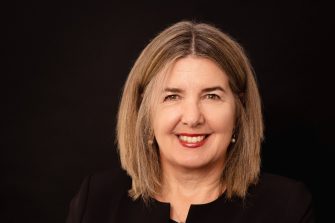
Professor Rebecca Ivers AM
Lead Investigator: Inclusive Healthy Ageing
Professor Rebecca Ivers is Head of the School of Public Health and Community Medicine at UNSW Sydney. She is also an honorary Professorial Fellow at the George Institute for Global Health and NHMRC Senior Research Fellow. Ivers leads a global research program focusing on the prevention and management of injury. Trained as an epidemiologist, her research interests focus on the prevention of injury, trauma care, and the research to policy transfer in both high and low income countries. She has a substantial program of research addressing the global burden of injury, with a particular focus on inequalities and inequities in injury in low income settings, and the prevention of injury in Aboriginal and Torres Strait Islander people. Ivers has worked extensively with the World Health Organisation, contributing to multiple Good Practice Guides and global advocacy across unintentional injury.

Professor Mari Velonaki
Lead Investigator: People, Technology and Creativity
Mari Velonaki’s research is situated in the multi-disciplinary field of Social Robotics. Her approach to Social Robotics’ research has been informed by aesthetics and design principles that stem from the theory and practice of Interactive Media Art. Velonaki has made significant contributions in the areas of Social Robotics, Media Art and Human-Machine Interface Design. Her career outputs across these fields are extensive. Velonaki began working as a media artist/researcher in the field of responsive environments and interactive interface design in 1997. She pioneered experimental interfaces that incorporate movement, speech, touch, breath, electrostatic charge, artificial vision and robotics, allowing for the development of haptic and immersive relationships between participants and interactive agents. She is the recipient of several competitive grants, including ARC Discovery, Linkage, LIEF an ARC Fellowship, an Australia Council of the Arts, Visual Arts Fellowship, Australia-Japan Foundation, Fuji Xerox Innovation, AOARD.
Velonaki is a Professor of Social Robotics at Art & Design, UNSW. She is the founder and director of the Creative Robotics Lab (Art & Design UNSW) and the founder and director of the National Facility for Human Robot Interaction Research (UNSW, USYD, UTS, St Vincent’s Hospital).
Mari’s robots and interactive installations have been exhibited worldwide, including: Victoria & Albert Museum, London; National Art Museum Beijing; Gyeonggi Museum of Modern Art, Korea; Aros Aarhus Museum of Modern Art, Denmark; Wood Street Galleries, Pittsburgh; Millennium Museum - Beijing Biennale of Electronic Arts; Ars Electronica, Linz; European Media Arts Festival, Osnabruck; ZENDAI Museum of Modern Art, Shanghai; Art Gallery of NSW, Sydney, Museum of Contemporary Arts, Sydney; Conde Duque Museum, Madrid.
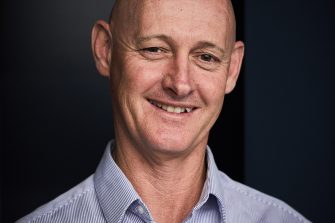
Professor Nigel Lovell
Lead Investigator: Ageing Well. Ageing in Place
Professor Lovell's (BE (Hons), PhD) work in research and development demonstrates a mix of scientific excellence, scholarship, innovation and leadership that maintains all the best traditions of academic life but also engages both industry and the community. He is currently the Head of the Graduate School of Biomedical Engineering at UNSW and has research projects with more than a dozen clinicians throughout the broader Health Alliance. UNSW has recognised his extensive research contributions by awarding a Scientia Professorship in 2011. He has published 700+ journal articles, books, chapters, patents, refereed proceedings and abstracts. He is a board member of the journal 'Physiological Measurement', a founding board member of the 'Journal of Neural Engineering' and an Associate Editor of 'IEEE journal of Biomedical and Health Informatics'.

Professor Jill Bennet
Lead Investigator: Self and Society
Jill Bennett is Professor of Experimental Arts and founding Director of the National Institute of Experimental Arts (NIEA), and formerly Associate Dean Research, UNSW Art & Design, 2006–2016. A writer and curator, she has published widely on visual culture, new media and transdisciplinary aesthetics. Professor Bennett, who received an ARC Australian Laureate Fellowship in 2017, merges art with technology to generate new insights into social and health issues. She plans to develop a virtual ‘Perception Environment’ that simulates seeing through the eyes of another, with the goal of changing people’s capacity to understand stigmatised and devalued populations and alleviating the effects of stigmatisation and prejudice.

